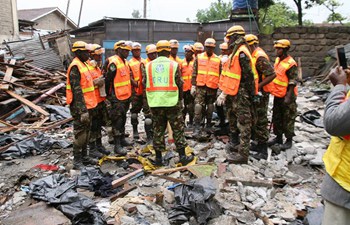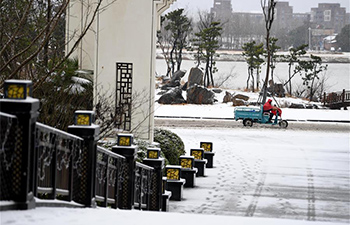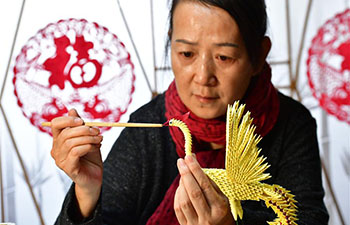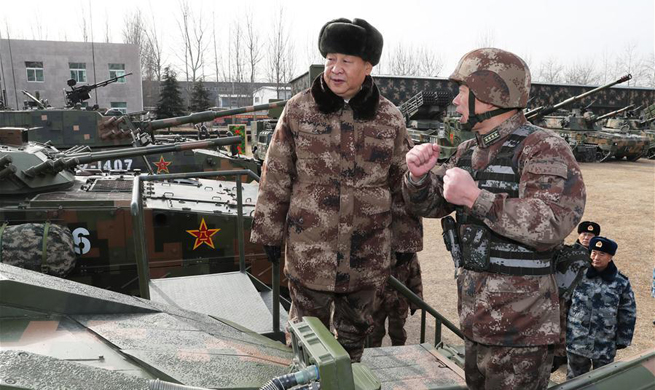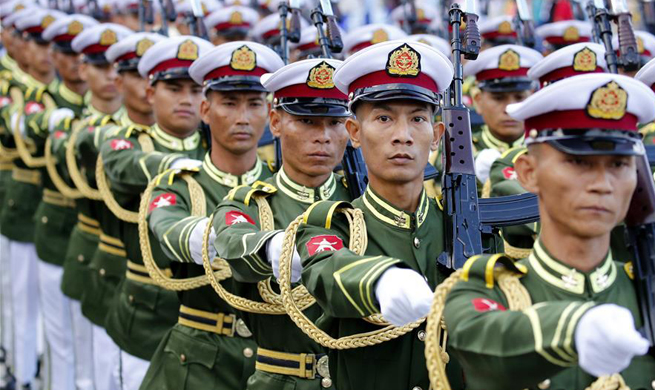CAPE TOWN, Jan. 4 (Xinhua) -- As a new school year is to begin later this month, tens of thousands of students from poor families are scrambling to apply for free tuition which President Jacob Zuma promised to deliver in 2018.
But where does the money come from? The Finance Ministry hasn't figured it out yet.
The ministry is not yet ready to pay the billions of rand needed to fund free tuition, spokesperson Mayihlome Tshwete acknowledged on Thursday.
The National Treasury is still looking for money to fund free education, he told Radio 702.
The Treasury is currently working on funding mechanisms, Tshwete said.
The Finance Ministry has been lukewarm after Zuma announced in December that the South African government would introduce free higher education and training for poor and working-class undergraduate students at public universities, starting in 2018.
The ministry responded by merely saying it was reviewing the details of the higher education proposals as well as possible financing options.
Zuma's announcement has caused a stir in the society, with those would-be beneficiaries hailing the move and opponents voicing concern about its practicability.
For the government, funding free education will put greater pressure on its straining budget which faces a revenue shortfall of about 50 billion rand (about 4.8 billion U.S. dollars).
At a press briefing in Johannesburg on Thursday, Higher Education and Training Minister Hlengiwe Mkhize refused to provide details on how the government will fund free education.
She said only that Zuma's announcement on free education is proof that education remains a priority of the government's pro-poor policies.
Zuma has come under fire for making the "reckless" announcement without an accompanying implementation strategy and roll-out timeline.
The announcement was ostensibly made without consulting the National Treasury or the Department of Higher Education and Training, critics claim.
There have been fears that chaos would break out once universities open for registration.
Universities have complained that their enrolment plans and targets for 2018 are already in place, and their resources can only allow them to consider applications lodged online before the end of 2017.
However, the radical Economic Freedom Fighters (EFF) on Thursday called for walk-in registrations for poor students who are qualified for free tuition.
If universities did not allow walk-in registration to occur, then the EFF would prevent any access to campuses, the EFF Students Command threatened.
As anarchy is looming, the opposition parties - the Democratic Alliance (DA) called on the government to provide leadership to prevent chaos once universities open for registration.
DA Shadow Minister of Higher Education and Training Belinda Bozzoli said on Thursday that his party is concerned by the complete lack of leadership from the government on the higher education funding crisis.
After South Africa's major universities were hit by student protests in 2015 over tuition fee hikes, Zuma appointed a commission to study the feasibility of free education, an overdue promise by the ruling African National Congress (ANC).
In 2007, the party made a resolution, pledging to have free education in seven years. The ANC has been criticized for failing to deliver its promise.





